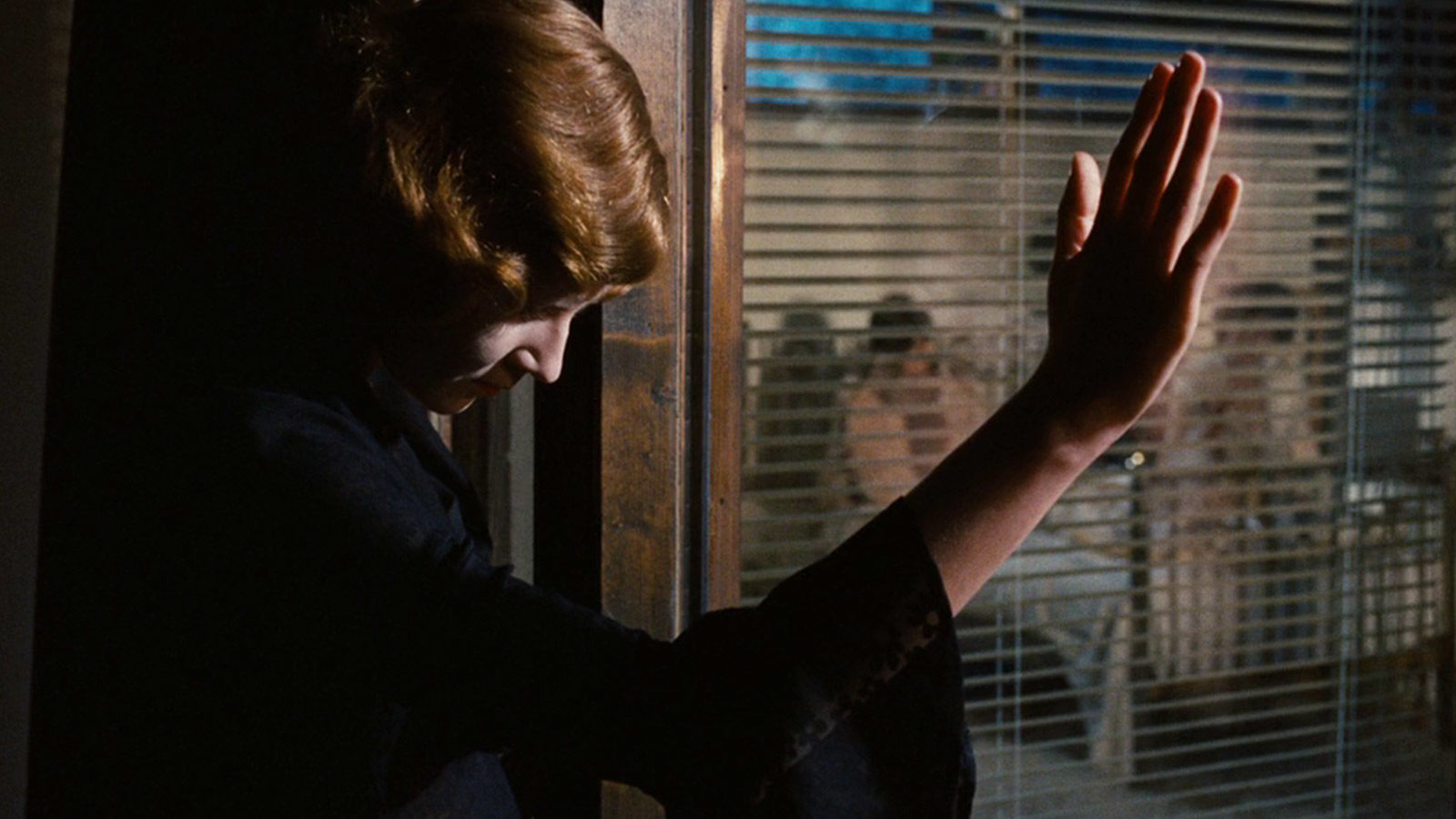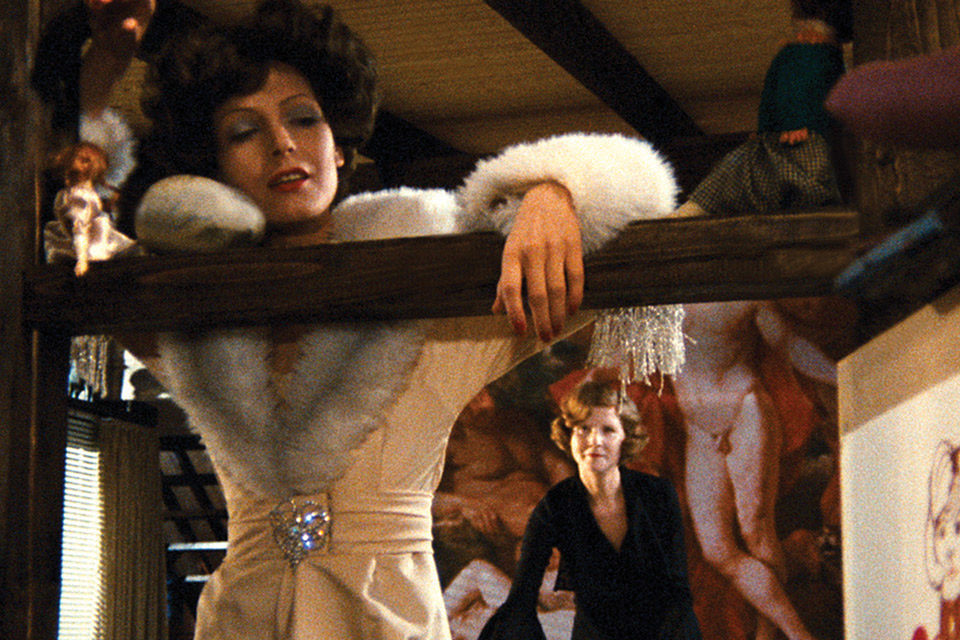By Matías Piñeiro in the July-August 2016 Issue

In the Moment: Irm Hermann in The Bitter Tears of Petra von Kant
No Pressure
Irm Hermann was part of Rainer Werner Fassbinder’s troupe from the early days of the Anti-Theater Group to the end of his career. She appeared in over 20 feature films he directed, and never had the sole leading role, yet it’s impossible to conceive of Fassbinder’s work without her presence.

From the July-August 2016 Issue
Also in this issue
In The Bitter Tears of Petra von Kant, Hermann plays Marlene, the submissive assistant of Fräulein von Kant (Margit Carstensen). Over the course of 124 minutes, she doesn’t have a single line of dialogue. Yet from her first appearance to her final exit to the tune of the Platters’ “The Great Pretender,” Marlene’s masochistic devotion to and unrequited love for Petra von Kant is soul-breaking to witness.
She is usually a small silhouette in the middle of the frame, working hard at her typing machine. Deprived of words, she wears the mask-like expression of a broken doll. Hermann suspends that look in time through a peculiar style of posing; with the exception of close-ups, she is perpetually a figure in the background. The highly stylized camerawork is careful to keep her in frame as other characters play out the main action in the foreground.

The Bitter Tears of Petra von Kant
Yet Marlene cannot be dismissed, even when she is often a dimmed shadow in space. Through sound and image, she becomes a key element of the whole piece. When not on screen, she seems even more present through the hammering noise of her slavish labor, which we hear in counterpoint to her mistress’s dialogue.
Hermann’s performance feeds off a perverse kind of suspense: Marlene gets her power from her potential. By always having to acknowledge her presence on screen, the viewer has the feeling that Marlene might spring into dramatic action at any given moment. Drawing out that possibility for as long as possible allows Hermann to explore the ominous and painful paradox of love without demands.



